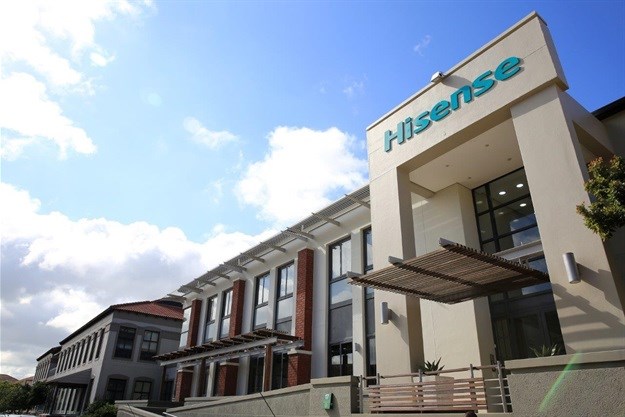Chinese electronics manufacturer Hisense and Plastics SA have committed themselves to enabling previously unemployed persons to gain the requisite skills to join the workforce, with a skills development programme, which began in September and runs until March 2016.

Hisense Cape Town office
Hisense's commitment to training new employees does not end there. Once the current programme is concluded, a new workplaces skills planning (WSP) programme will be submitted to skills education training authority MERSETA by the end of April, and following this, will begin in May 2016.
Plastics SA is an accredited training provider, registered with the MERSETA, which enables Hisense to qualify for both mandatory and discretionary grants. While mandatory grants are smaller monthly grants, the discretionary grant is the larger one, but this is subject to a current audit.
Plastics SA offers a strong and diverse line-up of learning/skills programmes ranging from skills that do not fit into the National Qualifications Framework (NQF) qualifications all the way up to NQF Level 4 and Recognition of Prior Learning (RPL) assessment on NQF Level 5. These include thermoplastic welding (butt, hot air, electrofusion welding) and principles of quality (NQF level 2), up to the fabrication of polymer composite parts and manufacturing and assembly operations supervision (NQF Level 4). Plastics¦SA was also able to source courses that it did not facilitate, as per Hisense's needs.
At the end of October 2015, 90 people have been sent on courses - 62 have been enrolled in the two-day Effective Workday Performance course, 10 have completed Principles of Quality and 11 sent on the Manufacturing and Assembly Operations Supervision Skills Programme. The Operations Supervision courses entail effective planning, communication, workplace calculations, effective workplace performance and industrial relations. The courses, particularly those that focus on skills development, can lead to a Further Education and Training (FET) Certificate, which is a NQF Level 4 Qualification.
Hisense has reported good results thus far. Comments from the participants included that they were happy with the training and that they were looking forward to completing more training in the future. Also noted was the cost involved in studying privately and thus appreciation for the company's willingness to invest in its staff.
In June 2013, under the support of local government and the China-Africa Development Fund, its manufacturing plant in Atlantis, 30 kms outside Cape Town, was opened with the decision to create jobs for 500 previously unemployed locals. The area has socioeconomic challenges, most notably a 55% unemployment rate. The establishment of employment created by the factory, had a wide-reaching positive impact on employees and their families. To date, the job opportunities created has surpassed the original 500 new jobs mark.
In order to run the factory effectively, experienced engineers from Hisense's global headquarters in Qingdao were brought on board to train the local staff. "Training and upskilling our employees is of paramount importance. We do not just want to create employment in the region in which we operate, we also want to ensure our people have valuable skills and experience with which to better their lives moving forwards," concludes Hisense human capital development manager, Mark Dammert.






















































